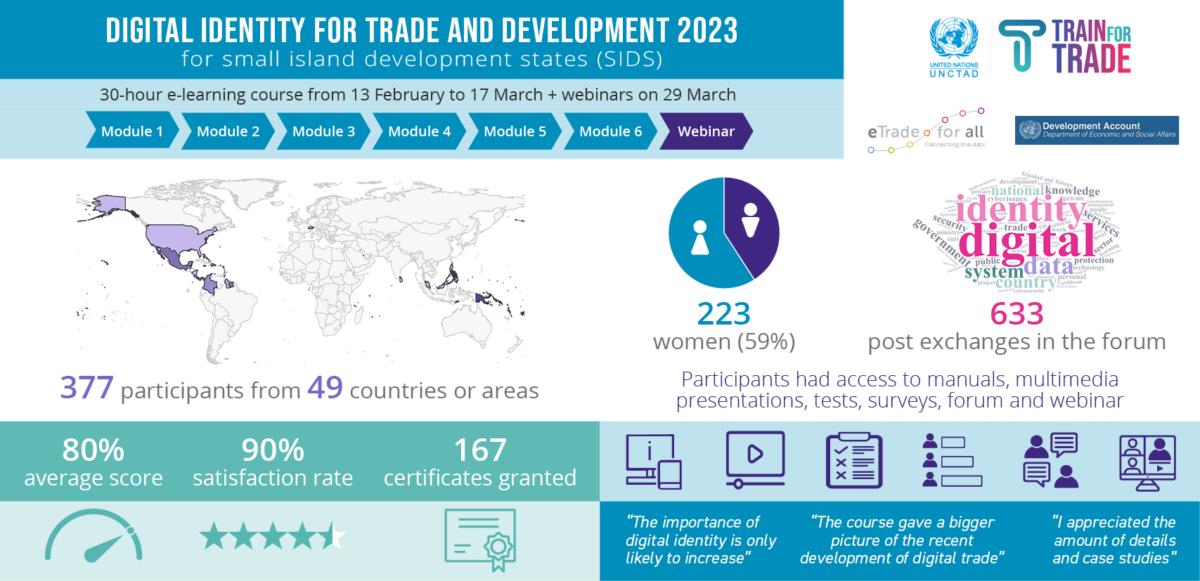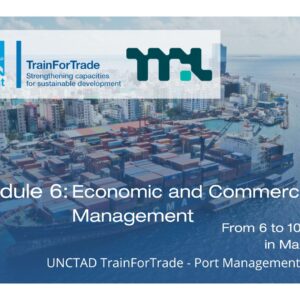Course on digital identity boosts digital economy in SIDS

Regional e-learning course on Digital Identity for Trade and Development enhanced the knowledge and skills of various aspects of digital identity, data protection and technology solutions. The course was organised in English from 12 February to 29 March 2023 and it was targeted at small island development states (SIDS) and Pacific Island and CARICOM member states.
This TrainForTrade course had 377 participants from 49 countries or regions, with 223 (59%) female participants. The contents and delivery of the course were a success and it reached a very good 90% satisfaction rate among the participants.
Information technology and e-commerce have immense potential for small island developing states to support their participation in international and regional markets, build resilience, and recover better from disasters.
However, the digital economy in SIDS is still in its early stage of development. The common challenges in the digital transformation of SIDS include access to affordable digital infrastructure and the lack of adequate legal frameworks and digital identity systems.
This course identifies and drafts policies on digital identity related to trade and development. It includes defining:
- the limits of data protection and digital identity;
- the scope of digital identity governance;
- the risks and solutions related to digital identity.
The participants found the information and knowledge received during the course very useful for their work and for the development of digital identity in their countries.
“Saint Lucia is in the process of implementing several key digital transformation projects seeking to bring over 100 government services online. This course has provided great insight into digital ID and how other countries have successfully implemented theirs. The knowledge gained here will support the rollout and help our team further engage the necessary stakeholders”, said Ms. Johanna Khodra from Saint Lucia.
”My country is on its foundation toward implementation of paperless transactions. Going through the case studies of different countries has helped me understand how Digital Trade Agreements will benefit my country”, commented Mr. Anderson Kukutu from the Solomon Islands.
”In Fiji, many people in the rural area don’t have an ID or birth certificate. However, they all have mobile phones which makes it just and reasonable that if digital identity is adopted, everyone has the opportunity to have an identity document which is accessible”, thought Ms Veresa Macanavere from Fiji.
”By implementing policies and investing in digital infrastructure, we can start a digital transformation that can help us become more competitive and productive, as well as provide better services to our citizens. The course has helped me acquire soft skills that I can use to educate individuals about the importance of digital identity and how they can safeguard themselves from cyber-attacks”, said Ms. Pamela Ipai from Papua New Guinea.
The numerous feedbacks highlighted the richness of discussions and innovative approaches, but also the relevance of module subjects given the added value that participants gained for their field of work.
This course on digital identity is part of the project ”TrainForTrade blended learning strategy to boost the digital economy in small island developing states of Africa, the Caribbean and Asia and the Pacific” (2022–2025).






